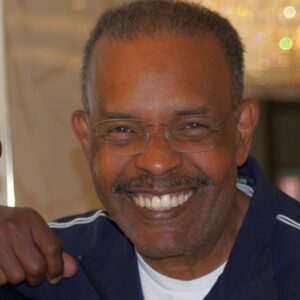Election Day isn’t celebrated, and for most of us, voting is inconvenient. So much so that only presidential elections draw a decent turnout. In 2020, a record year, 66.8 percent of the electorate voted.
The ballot box towers in significance in its consequence, but it seems banal when you traipse to a church hall, an armory, or a high school to do the deed.
Also, people in line to vote act strangely, suspecting each other of being a supporter of the rascals who have either made a mess of things or the rascals who will make a mess of things.
Given these things, and without regard to the present standoff in Congress over the For the People Act, it would seem to me that voting by mail, or even electronic voting, makes sense. We do most things of consequence electronically. The failsafe ID for voting in most states is a driver’s license. The Republicans are against voting by mail and electronic voting, but in most states, you can renew a driver’s license by either means. Kafkaesque?
For Joe Madison, the legendary Black broadcaster and human and civil rights activist, voting is vital, and the ability to cast your vote easily and without duress is sacred. Further, he believes that contrived exclusion from the polls is a major felony against people of color.
Madison is prepared to put his life where his mouth is: He began a hunger strike for voting rights on Nov. 8, 2021.
During his college days, Madison was an all-conference running back on the football team, but now he is emaciated. He is following a liquid diet like one his friend Dick Gregory, the late comedian and civil rights activist, developed for his hunger strikes.
Madison told me he falls asleep at odd times and wakes up during the night. There is physical discomfort. Although he is getting to the point where the stress is showing, he plans to continue his hunger strike.
I have known Madison for over 20 years. I can hear the weakness in his voice. He is still doing his live radio talk show on SiriusXM Radio daily from 6 a.m. until 10 a.m. Eastern Time. As someone who has done four hours straight on radio, I can attest that in the best of health, it is a workout.
Madison sees the current battle over voting rights in the Senate and the Republican-controlled state legislatures’ push to restrict voting rights as reminiscent of the end of Reconstruction when the South began to push back against Black voting rights granted at the end of the Civil War. “It included poll taxes, literacy qualifications, and property ownership, and led to lynching and the emergence of the Ku Klux Klan,” Madison said.
He told me he is worried for the future of his children and grandchildren if voting rights should be abridged again. He has three daughters, a son, five grandchildren, and one great-grandchild. He wants the vote to be free and fair for them and their children. That is why he is staring death in the face and hoping that the Democrats will prevail, and good sense will triumph, he told me.
Madison studied sociology at Washington University in St. Louis where, in addition to being a football player, he sang solo baritone in the college chorus. On graduating, Madison went into civil rights work. At age 24, he became the youngest director of the National Association for the Advancement of Colored People in Detroit.
Madison began his broadcasting career in Detroit in 1980 and moved to Washington in the 1990s, where he mixed broadcasting with activism in a slew of causes.
I met Madison when he was protesting slavery in Africa and went to Sudan to free slaves. He wants the world to know how critical the voting rights legislation is to the African American community. “If we don’t get that bill, it could cost the Democrats both houses and the White House. African Americans may just be so fed up that they stay home and don’t vote,” he said.
Madison supports moves to modify the filibuster to bring about Senate passage. He is very hopeful the legislation will pass, and recalcitrant Democratic Sens. Joe Manchin (W. Va.) and Krysten Sinema (Ariz.) will vote for changes to the filibuster.
You don’t have to agree with Madison to admire him: A man with the courage of his convictions, measured by the endangerment of his health.

